Asking someone “Are you a friend of Dorothy’s?” used to be a way to determine if someone may be a member of the LGBTQ community. If you were in Door County, you may have heard “Are you a friend of Sandy Brown?” Sandy is a local fixture there—deeply connected to the LGBTQ community where she has been a familiar presence since 1976.
Sandy Brown was born in 1946 in Rolla, Missouri—a city halfway between St. Louis and Springfield. She was the eldest of four children and had three younger brothers. In the first two years of Sandy’s life, she moved 24 times. When reflecting on her youth, Sandy vividly remembers going to the local movie theater her senior year in high school where she saw the film The Children’s Hour starring Audrey Hepburn, Shirley MacLaine, and James Garner. In the movie’s dialog, Sandy remembered hearing the word “lesbian” for the first time. The movie wasn’t a positive portrayal of lesbianism but still Sandy knew that she strongly identified with the characters. Throughout high school, Sandy had what she called “strong female friends” and dated boys because she didn’t think anything else was possible at the time.
Women’s Army Corps
In 1967, Sandy was in college studying technical theater. One of her favorite memories from this time was being in a children’s theater workshop production of The Wizard of Oz where she had the role of Glinda the Good. Sandy sought the advice of a college counselor about being gay. She told the male counselor that she thought she may be a homosexual. The counselor replied, “Oh, I don’t think you want to be that.” Sandy thought that maybe her counselor was trying to protect her because at that time homosexuality was listed as a mental disorder in the Diagnostic Statistical Manual (DSM) used in the field of psychology. The DSM would not change its stance on homosexuality until 1973.
In Sandy’s junior year of college, a member of the Women’s Army Corps (WAC) presented to students about a month-long summer program that involved going to Fort McClellan in Anniston, Alabama. Sandy was drawn to the thought of service as her family had a strong history of military service. During World War II, Sandy’s aunt had served in the United States Marine Corp, so Sandy decided to “go play soldier.” During her time at Fort McClellan, Sandy learned about an opportunity to join the service as a WAC after college graduation. With her undergraduate degree, Sandy would be sworn into service as a 2nd Lieutenant. Sandy became an executive officer in the WAC where she trained battalion operations for other female officers and enlisted members entering the U.S. Army.
Sandy learned pretty quickly that army life was not for her. Sandy reflected on this time that she “didn’t really like anything—except I didn’t have to decide what to wear.” Sandy completed officer training but was told if she wanted to go somewhere other than Fort McClellan, she had to extend her service. She had already made up her mind that she was not staying and began writing a list on legal paper to share with her supervising officer on why she didn’t want to be in the army. When she eventually shared the list with her supervisor, the list had grown to over five feet long in length! Sandy became “the talk of the base” due to the legendary length of her list.
Sandy left the army after two years of service as a 1st Lieutenant. Fifty years after her time in the service, Sandy reunited with fellow members of the WAC after they found one another on Facebook. During a reunion in Las Vegas, Sandy learned that six out her 10 friends in the WAC had come out as lesbians after the service. Sandy recalled that she was on her third relationship before she used the term “lesbian” only because her girlfriend at the time asked, “Well, who are you?” After that, Sandy embraced the queer life: She saw Chris Williamson at the Women’s Folk Festival and attended the Michigan Womyn’s Music Festival.
Teacher with a Roommate
Sandy never pictured herself as a teacher. But the WAC had taught her how to be a teacher during her time as a trainer in the army. Sandy decided to use her GI Bill benefits to become a special education teacher. In the summer of 1976, Sandy went home to Missouri to visit her parents. She took her partner with her. Often Sandy and her girlfriend dressed similarly and referred to one another as “roommates” in front of others. Her mom gifted the two of them with two shirts she had made for them. Sandy felt that no one suspected they were gay and just assumed they were two straight women living together.
While visiting that summer, they went camping with her family in the Ozarks. Sandy’s mom asked her to go on a walk with her without her roommate. It was during that walk that her mom asked Sandy, “Why did you ask your roommate to come along?” Sandy answered, “Because we are partners.” Her mom asked, “What does that mean, and what do you do?” Overall, Sandy felt coming out to her mom to be positive, as her mom was always accepting. Unfortunately, shortly after that trip to the Ozarks, Sandy’s mom passed. She would wonder for years if her mother had told anyone else in their family. She wouldn’t get the answer to that question for another 16 years.
In 1976, Sandy moved to Wisconsin to work at a school in Door County where she taught students with different learning abilities. In 1981, she was approached by a foster parent who asked if she was interested in adopting a child with autism who was a student in her class. Sandy was in the closet at the time and ended up adopting her then 8-year-old son, Shane, as a single-parent adopter. In 1981, Sandy moved to Antigo, and continued her work as a special education teacher. In 1984, Sandy and her son moved to Madison, but she began seeing someone in Door County. She would drive back and forth from Madison to Door County and eventually moved back to Door County in 1992 following Shane’s passing in 1991.
Finding PFLAG
In 1992, Sandy and her partner traveled to San Francisco for a conference. They attended a Harvey Milk reception at the library and went to the San Francisco Pride Parade. They took a bunch of pictures of their trip and decided to assemble a photo album to send to Sandy’s family. They sent the albums with Ghirardelli chocolate with instructions on a note to Sandy’s family that read: “When you gather—open and share together.” Sandy figured that this process would be the easiest if everyone was together to get the news at the same time.
Shortly thereafter, her oldest brother called Sandy and asked if she was trying to tell them something. Sandy responded, “Yeah, we’re partners, and we’re lesbians.” Nobody else said anything to Sandy for a long time. Eventually her youngest brother, who was very conservative, mailed her a long letter that condemned her for being in a relationship with a woman. Sandy reflected on this letter, calling it “basically, devastating.” For years, Sandy had wondered if her mother had ever told anyone in the family about her lesbianism. It seemed that her mom took that information with her when she passed—not telling a soul as far as Sandy could tell.
Sandy and her partner traveled to Madison to visit friends. While there, they attended a Parents and Friends of Lesbians and Gays (PFLAG) meeting because they were figuring out how they could come out to their families. They also contacted other organizations such as Positive Voice in Green Bay, and Northern Womyn. Initially, all of these groups were used as personal resources for Sandy and her partner. Eventually PFLAG would become the group that caught Sandy’s attention as she felt it was a “whole group of people—not only accepting of me, but supporting and fighting for my rights.”
It was in 1995 that Sandy would become a representative for PFLAG in Door County. She would ultimately become the PFLAG Regional Director from 1998 through 2000. Sandy felt compelled to do more, so she joined the PFLAG National Board (2000–06) and eventually became its Vice President. Reflecting on her time in PFLAG, Sandy stated, “I haven’t done anything significant in my life—but like a splinter in your shoe—I stayed persistent to say we’re here.” Early in the Door County Chapter of PFLAG’s existence, Sandy encountered resistance. She recalls trying to put meeting announcements in the local paper, but the newspaper would consistently forget to publish them. Finally, after this happened several times, Sandy became fed up and asked to talk to a supervisor. There never was a meeting with the supervisor, but their meeting announcements started getting published in the newspaper.
President Bill Clinton was associated with Don’t Ask, Don’t Tell (DADT) in 1994 and the Defense of Marriage Act (DOMA) in 1996. After reading a 1996 interview in The Advocate with President Clinton in PFLAG’s magazine, Sandy picked up pen and paper and decided to write to Bill Clinton to share her thoughts on the matter. She urged President Clinton to strike down DOMA. To Sandy’s shock, a letter on official White House stationary with a response from Bill Clinton himself arrived in the mail in which the president stated that he didn’t agree with same sex marriage. Sandy still has that letter today (pictured above).
Ellen Coming Out Party
The Door County PFLAG chapter had a post office box that Sandy checked frequently. One day, she opened a letter from a young gay man that felt isolated living in Door County and had contemplated suicide. Sandy barely finished reading that letter before she was on the phone calling him, hoping she wasn’t too late. Luckily, that young man answered the phone. As a result of this letter, Sandy decided that PFLAG would start gathering more in-person for social support.
In 1997, Ellen DeGeneres came out on the cover of Time magazine, and it was widely talked about. PFLAG National suggested that chapters hold an “Ellen coming out party,” and that’s just what they did. Sixteen people attended the party, including the young man who wrote the letter. That young man is alive today and a member of the Door County PFLAG Chapter. Ellen’s Coming Out Party in 1997 would mark when Door County became an official chapter of PFLAG. Sandy held the titles of Founder, President, and Treasurer in the Door County PFLAG Chapter.
After the Ellen party, the group started gathering regularly once a month. They would have watch parties for “In the Life,” an LGBTQ news program that used to air on PBS. Over the years there would be more viewing parties that were open to the public, followed by discussion. Some of the notable viewing and discussions included: For the Bible Tells Me So (2009), Gen Silent (2015), National Geographic’s Gender Revolution (2017), and Becoming More Visible (2019).
Thee Sandy Brown
In 2004, when Wisconsin had a constitutional amendment on the status of marriage, Sandy and other friends would gather on Market Square and provide information about the amendment as it pertained to the LGBTQ community. When the square closed at Noon, the group went geocaching. They even made shirts that were printed with the phrase “Friend of Sandy Brown.” Sandy had her very own shirt that said: “I am thee Sandy Brown.”
When thinking about some of her favorite memories or accomplishments, she is particularly proud of being on the PFLAG Board pushing for transgender rights. PFLAG was the first organization to stand alone on the issue of opposing any legislative measures that ignored transgender individuals. When on the PFLAG National Board, there was an issue over the matter with the Executive Director at the time disagreeing over wording a major policy change. As a National Vice President, Sandy felt it was her responsibility to make sure the correct wording was in the policy. Two board members ended up leaving their posts because of this incident. Sandy saw that the Executive Director was not renewed in his term.
In 2018, Sandy was called up onto the stage at the annual Open Door Pride in Sturgeon Bay. She was presented with the Open Door Pride Visionary Award for her service to the Door County community. Sandy was also an original organizer of Open Door Pride. She was completely surprised and shed tears of gratitude when she was told that starting in 2019 the award would be named after her. Officially, it’s now called the Open Door Pride Sandy Brown Award. In addition to the Visionary Award, Sandy has also been the recipient of other important awards for her service to the LGBTQ community including: PFLAG Starr Award and Door County’s Ann Kok Social Justice Award (both in 2013).
A little-known fact about Sandy is that she has had lovers since the 1970s but never held hands or kissed in public until 2011! Sandy is super-proud to have been a part of the Door County AIDS Task Force and has supported the AIDS Walk Wisconsin for 30 years! When thinking about the future, Sandy said, “Young people need to vote because people are creating laws against us. We become lackadaisical when we think everything is running smoothly. Just look at trans healthcare…it has caused us to wake up and stay alert. Question everything. Pay attention. Be present in the moment and pay attention to life around you. PFLAG would love for you to get involved in your area. Check out PFLAG.org—there are more than 11 chapters in Wisconsin alone.”
Nicole Kurth has more than 15 years of experience in higher education, holding a Master’s Degree in Student Personnel Administration and a Bachelor’s Degree in Graphic Design. She is currently on the board of directors for the Wisconsin LGBTQ History Project. Both Nicole and her wife love animals and have an extensive fur family: Four dogs and four cats. They also raise service dogs for children with autism.


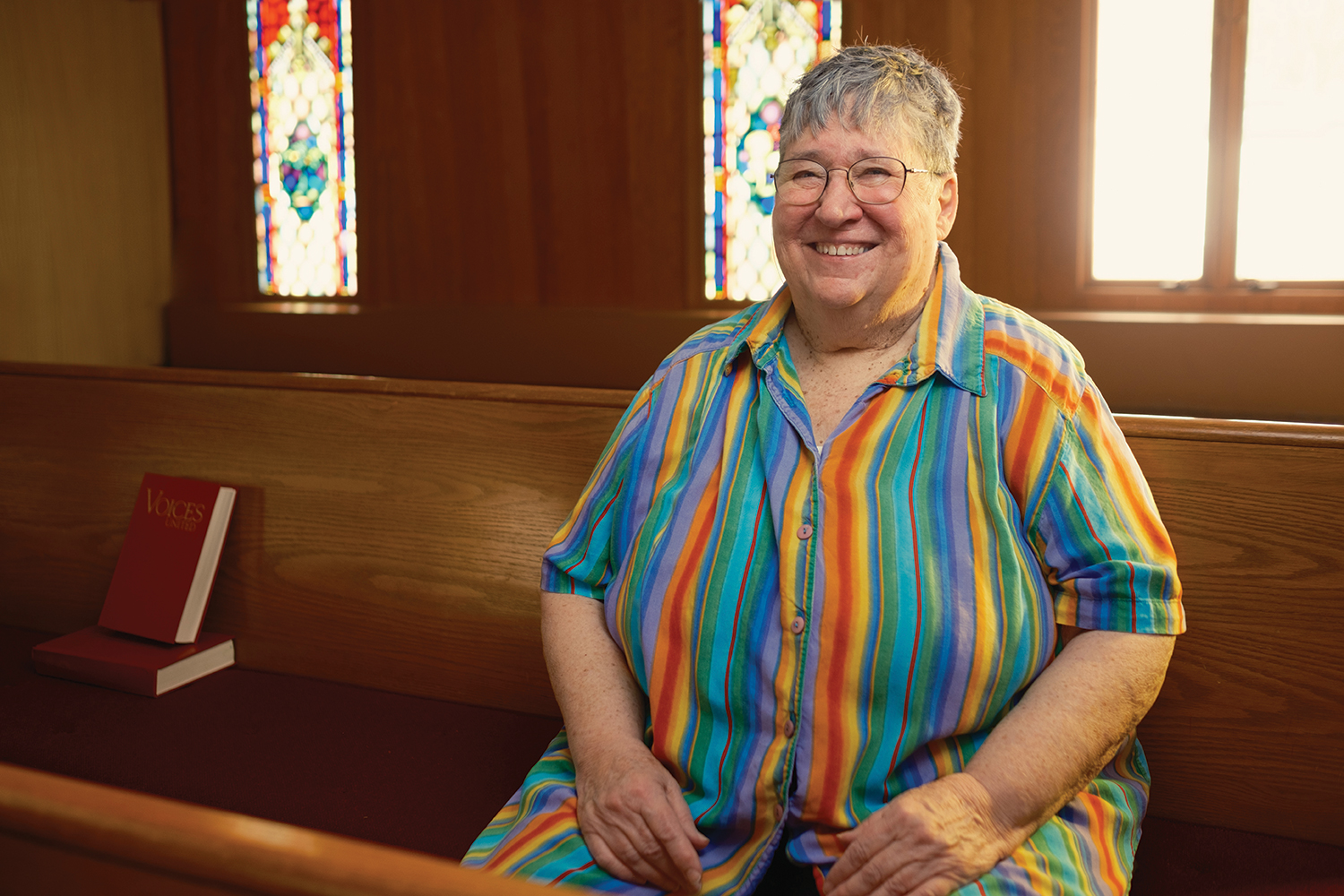





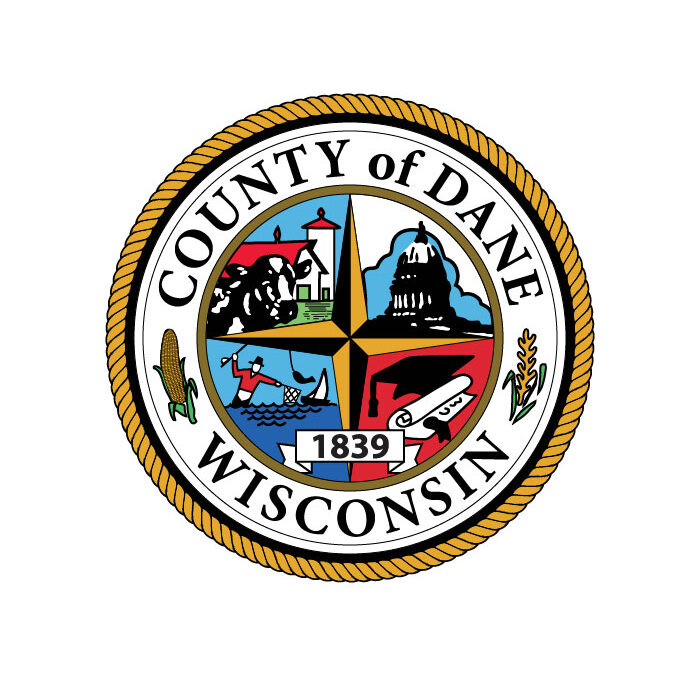
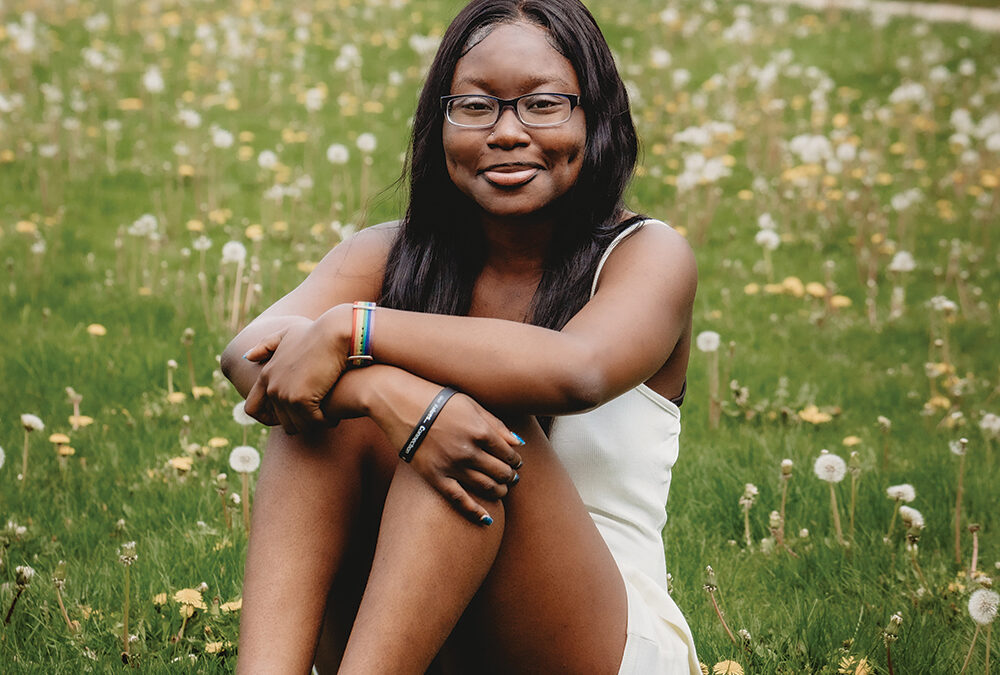

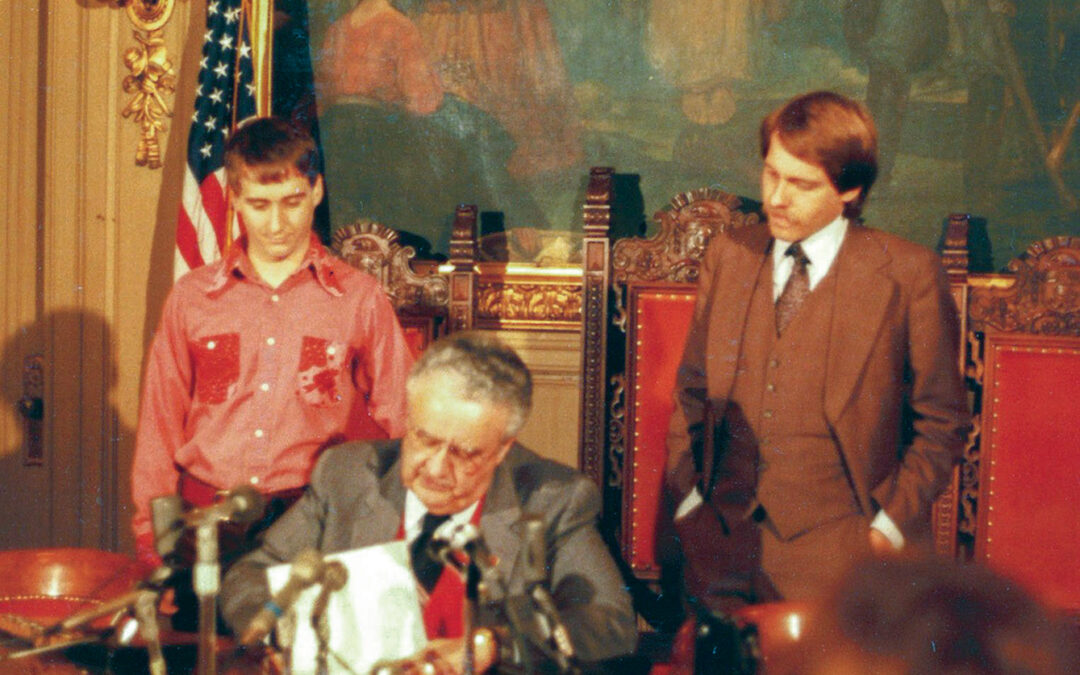
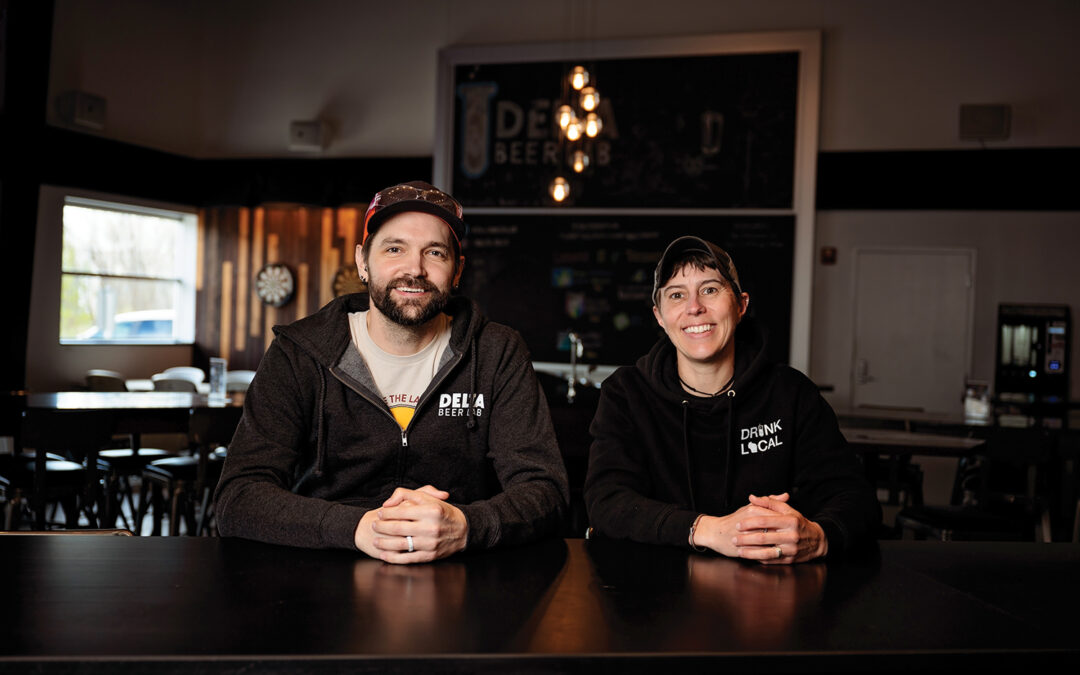
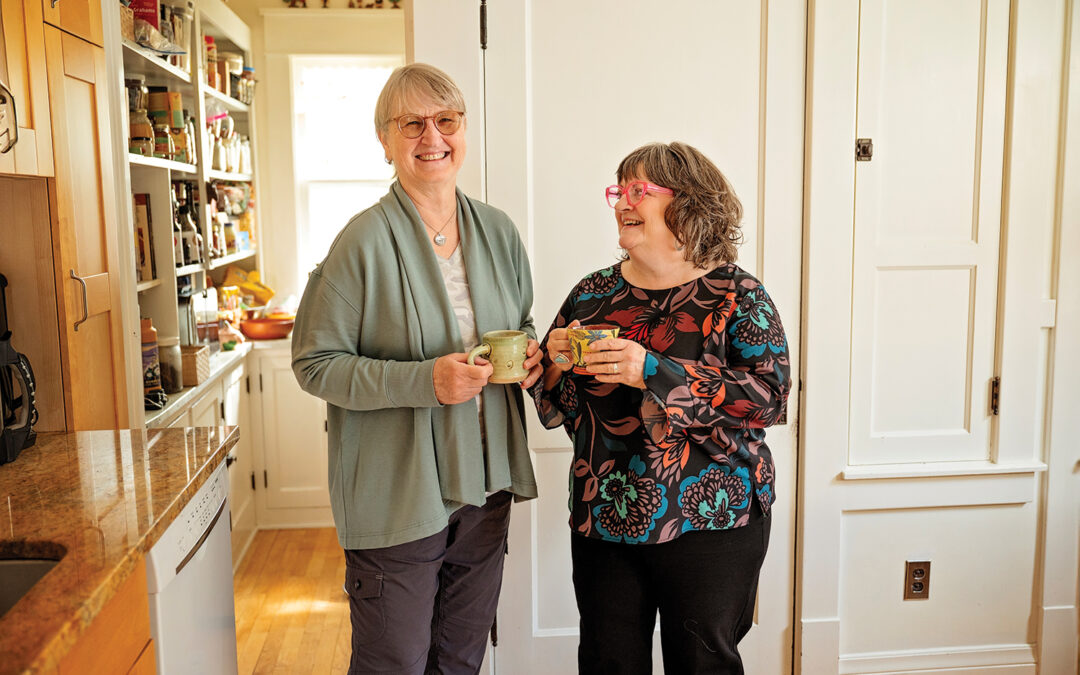
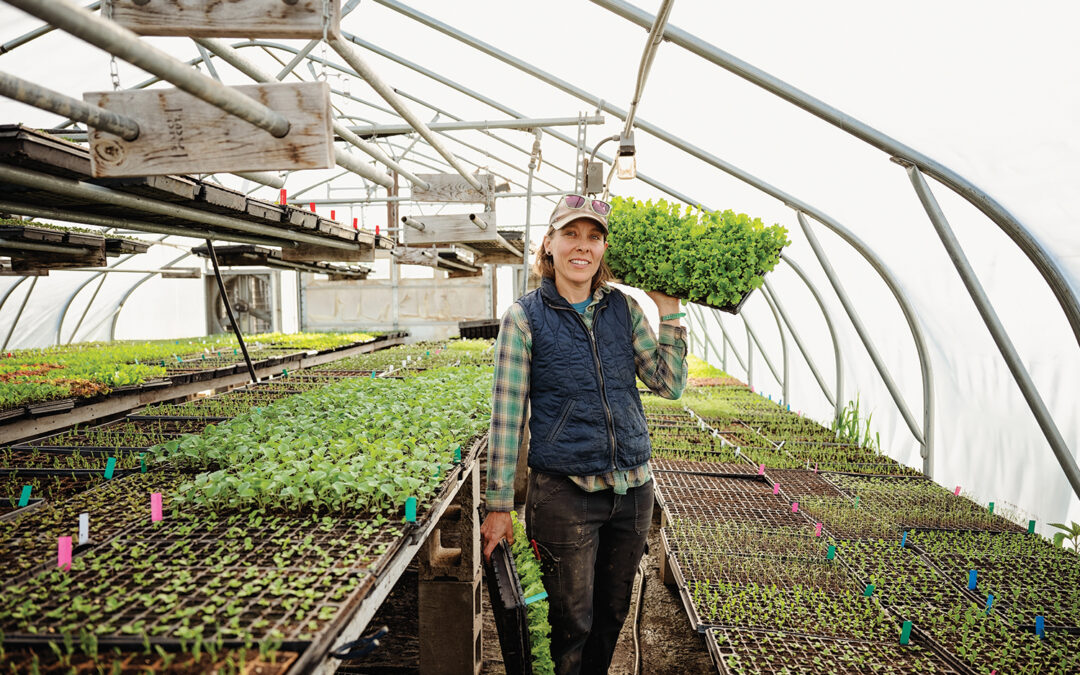
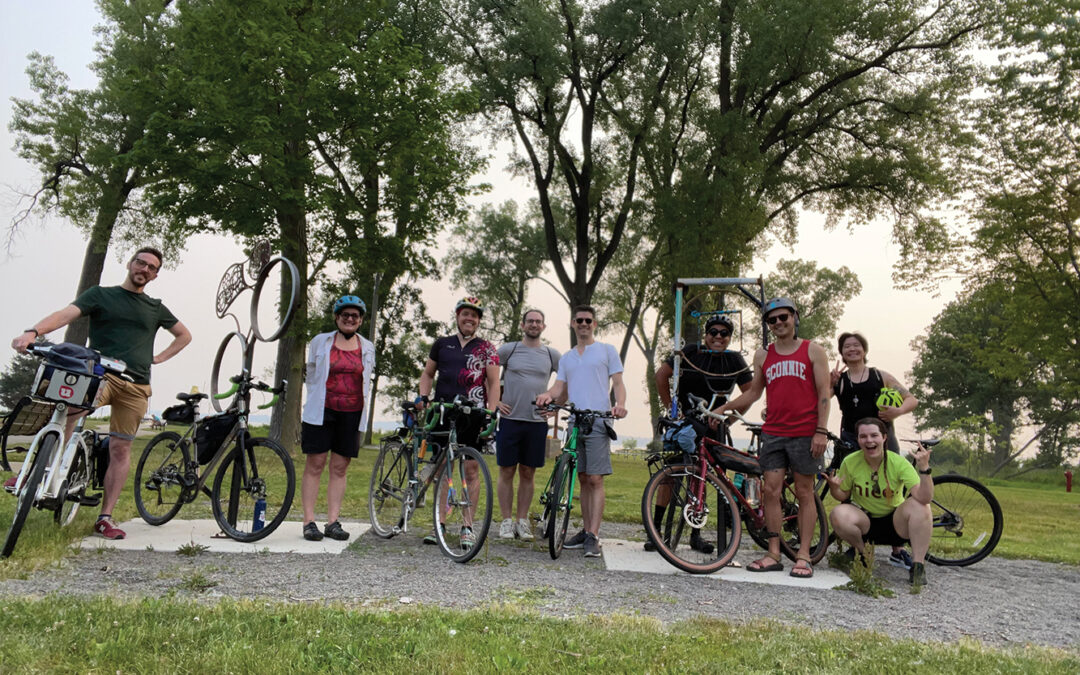
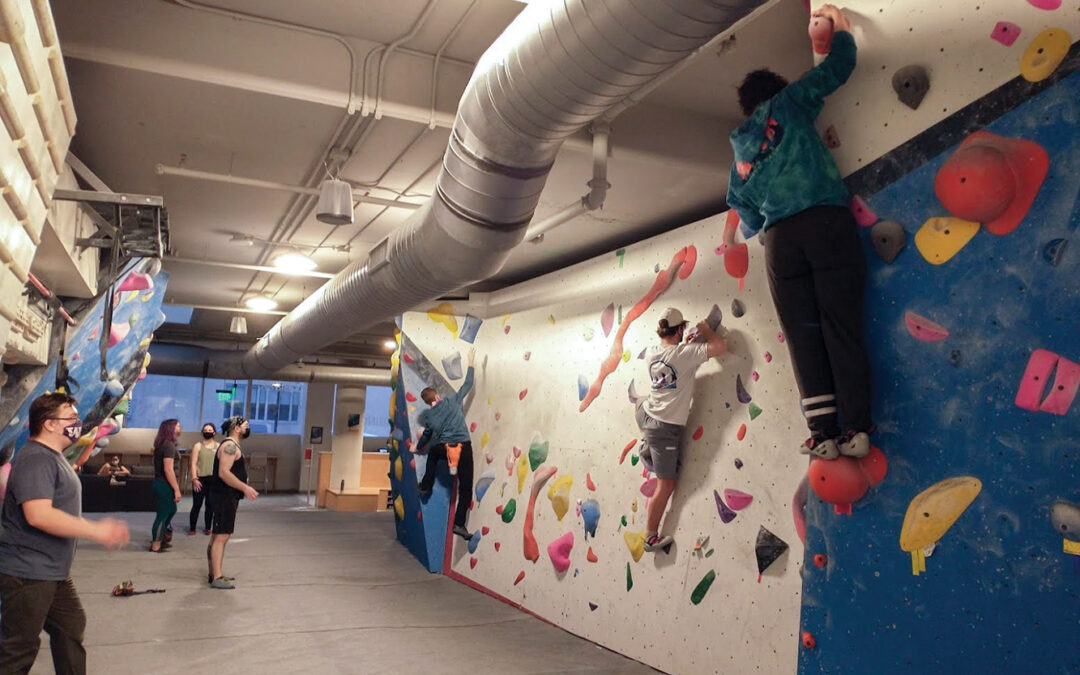

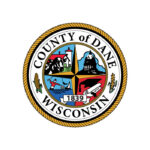
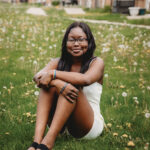


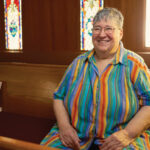







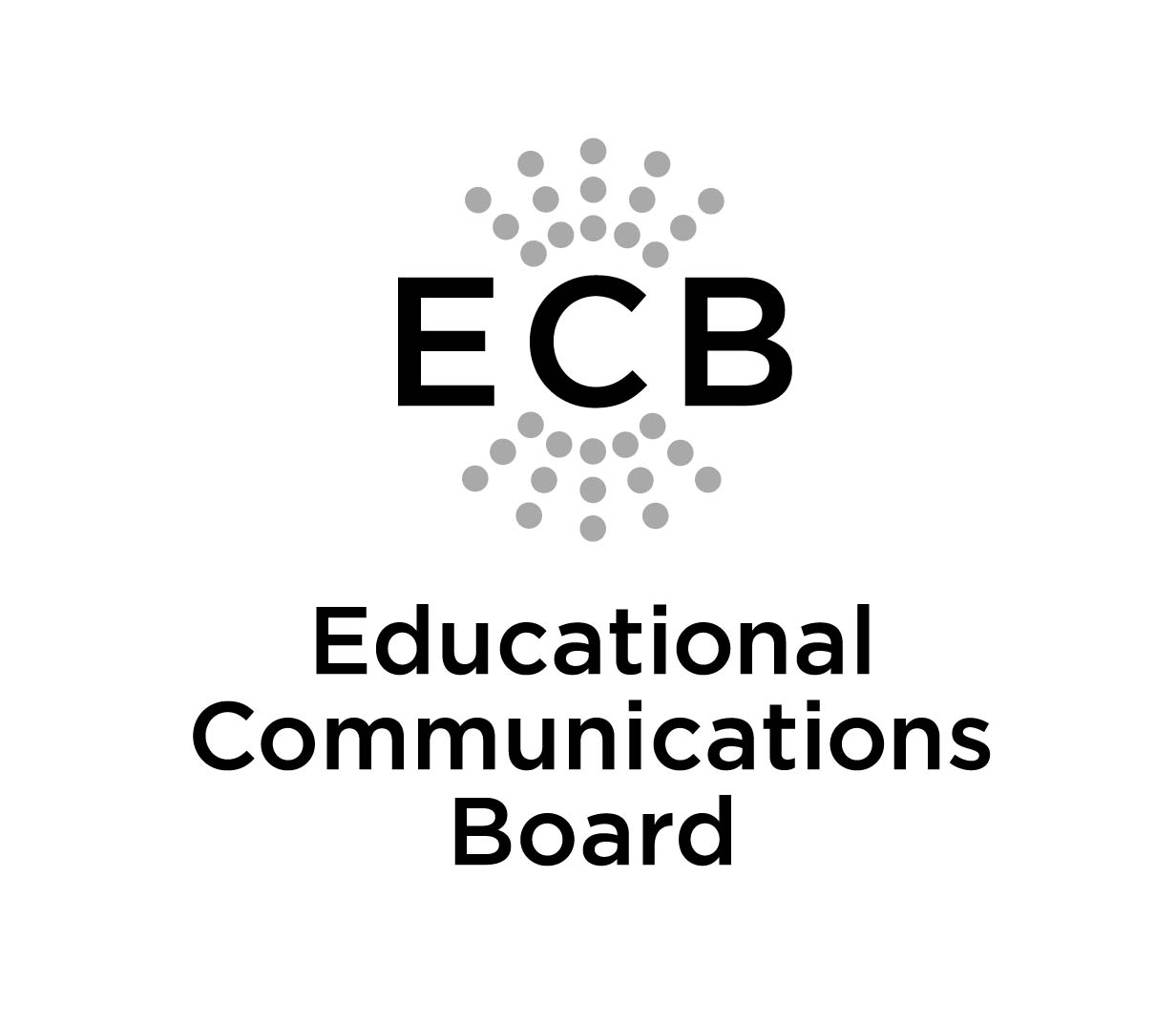
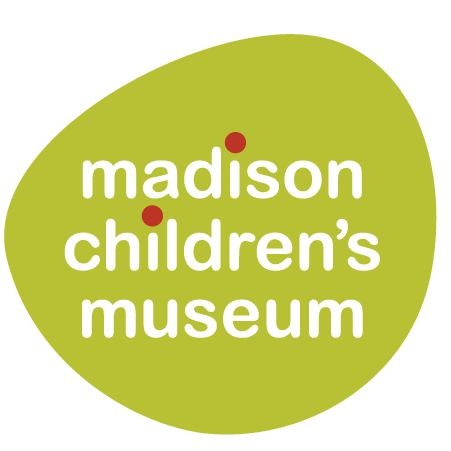
0 Comments